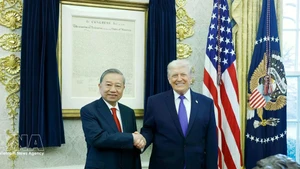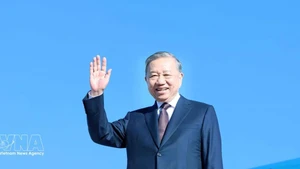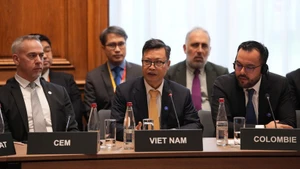The PM said that in the context that countries are suffering impacts of the COVID-19 pandemic, climate change and resource depletion, promoting international cooperation in the field of digital technology is the key to helping countries transform their growth models, better exploit resources, promote flows of capital, goods and services, thereby creating a new driving force for economic growth, and ensuring sustainable, inclusive and comprehensive development.
He emphasised that Vietnam’s potential for digital economic development is enormous as the country is a dynamic developing economy in ASEAN, has a network of 17 Free Trade Agreements (FTA) with over 60 partners, and is a market of nearly 100 million population, most of whom are young and quickly adapting to digital technology.
Vietnam is ready to, together with China and other countries, promote trade in services and digital economy in particular, contributing to the development of each nation and bringing practical benefits to the region and the world at large, he said.
In the spirit, the Vietnamese Prime Minister put forward five specific proposals.
Firstly, he said, countries need to take advantage of digital transformation to accelerate the fulfilment of the United Nations Sustainable Development Goals (SDG) 2030, which focus on narrowing development gaps and social inequality between countries, creating conditions for people in underdeveloped areas to have equal access to services provided on digital platforms.
Secondly, he recommended further strengthening the role of international cooperation agreements on digital technology so that the digital economy develops strongly and in the right direction, while at the same time it ensures cyber security and safety, guarantees privacy, fights monopoly and eliminates inequality in the implementation of tax obligations.
Vietnam is willing to, together with other countries, build an appropriate legal framework so as to help the digital economy develop strongly, contribute and harmonise the common interests of the entire society, he affirmed.
Thirdly, attention should be paid to cooperation in education and training of human resources in science and technology, thus supporting labourers to gradually adapt to digital technology.
Fourthly, he suggested promoting the role of digital technology in trade facilitation, especially the movement of goods by multimodal transport, facilitating people’s travel, and ensuring the supply chain is not disrupted amid the COVID-19 pandemic.
Finally, countries need to strengthen cross-border e-commerce on the basis of equality and mutual benefit, thereby helping promote exports, especially for seasonal agricultural and aquatic products.
The Global Trade in Services Summit 2021 opened in Beijing, China, on September 2 as part of the China International Fair for Trade in Services (CIFTIS) 2021.
CIFTIS2021 is the largest of its kind with the participation of more than 700 enterprises inside and outside China.
There are 15 related conferences and forums within the fair’s framework. This is the first time Vietnamese enterprises have joined the event in both direct and online formats.
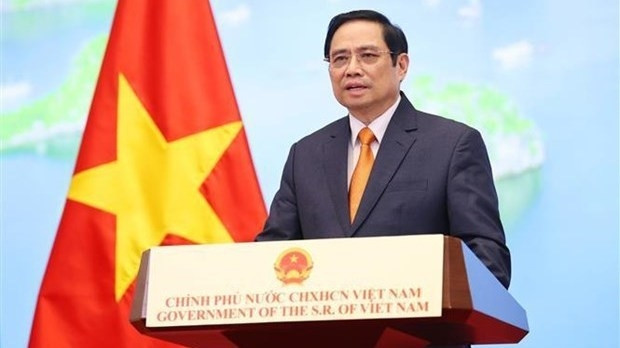
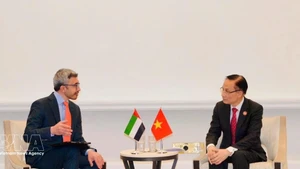




![[In pictures] Party General Secretary To Lam meets US President Donald Trump](https://en-cdn.nhandan.vn/images/dcd63867a0eed4c7753eb4bfb346593abc1ce710dfab8ad1b9aebd75ea6bf930b2ea13e4664779d689ba40aadd80f76d5d05d1208720fd7b0d811ace3a3297321c78cf738400e136e3f2d8790b24d43646e46edbe19517144a88f6ffb0d528f153574a7109328cc0949e4a4c16433c2ff751541639eefe4490518227264cbf8e/vna-potal-tong-bi-thu-to-lam-gap-tong-thong-hoa-ky-donald-trump-8599945.jpg.webp)

